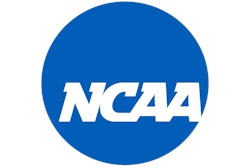
Harvard athletic director Erin McDermott said this week that it will be difficult for Crimson athletics to recruit a diverse class of student-athletes in today's NIL environment, especially following a ruling by the Supreme Court that effectively did away with affirmative action in college admissions.
Harvard, along with other Ivy League schools haven't seen the creation of donor collectives which have been so effective at other colleges in recruiting high school athletes.
McDermott told The Harvard Crimson that along with a lack of NIL collectives at Harvard, a recent Supreme Court ruling that effectively eliminated the use of affirmative action in college admissions will make it difficult for Harvard to recruit a diverse class of student-athletes, specifically those from low-income households. McDermott said Harvard will have to work on a new pitch to attract recruits.
“It’s a lifelong decision — it’s a 40-year decision versus a four-year decision,” McDermott said. “To a family that is coming from different circumstances, or the lower socioeconomic circumstances, that may be very fuzzy and hazy to them.”
McDermott said that she hopes that the school can ensure that all payments to athletes are linked directly to their name, image and likeness.
“What we are not okay with — and it’s not even legal, but I know the reality is it’s happening in other places — is these truly more ‘Pay for Play’ payments that are coming directly from donors that are just banding together and deciding what sums of money they might provide to athletes on a team,” she said.
Harvard hopes to cast as "wide a net as possible" in its recruiting efforts, McDermott said, noting that coaches are now spending more time recruiting at showcase tournaments than at individual schools.
Addressing the recent $2.8 billion settlement by the NCAA with current and former athletes, which is expected to open the way for schools to directly pay student-athletes, McDermott said the amount Harvard will be expected to pay is not "ridiculous" but also not "nominal."
“It’s, I think, going to be at a level that we’ll notice,” McDermott said. “But it’s not going to change the experience that we’re providing.”





































